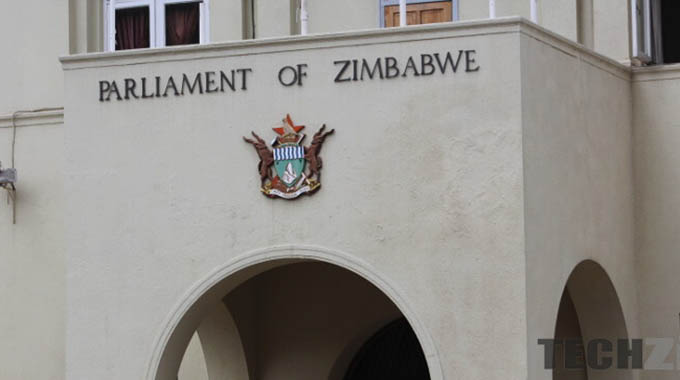Parliament happy with media reforms progress

Zvamaida Murwira-Senior Reporter
Parliament is impressed by the media reforms that have been implemented by Government that include repealing of objectionable laws and the freeing up of the broadcasting sector.
Legislators on Tuesday noted that Government had licensed community radio stations and said this gave meaning to the World Press Freedom Day commemorated last month.
Lawmakers hailed the Second Republic led by President Mnangagwa for opening up Cabinet deliberations through post Cabinet briefings saying the move was consistent with the desire to provide information.
They said this in the National Assembly while debating a motion moved by Matabeleland South MP Ms Sipho Mokone (MDC-T) on the importance of information as a public good.
Ms Mokone, who also chair the portfolio committee on Information, Publicity and Broadcasting Services, said the media played a critical role in the fight against corruption.
“The coming into effect of the Freedom of Information Act and the Zimbabwe Media Commission Act is a step in the right direction and we expect more laws that advance access to information,” said Ms Mokone.
She said while it was commendable that Government had licensed six television stations, there was need for them to go on air expeditiously.
“There is also need to review the cost of data because information is a right to people as a public good,” said Ms Mokone.
Chegutu East MP Cde Webster Shamu (Zanu PF) said the media was an important tool in relaying information.
“We need to harness the power of the media in line with the mantra that no one should be left behind,” said Cde Shamu.
He chronicled how former leadership of the Zimbabwe Union of Journalists led by seasoned journalists such as Vincent Chikwari, Kindness Paradza, Geoffrey Chada, Andrew Moyse and Geoff Nyarota among others, helped in the realisation of the Windhoek Declaration of 1991 which seeks to assert a free, independent and pluralistic media.
“Even our very Constitution guaranteed freedom of the press and independence of editors to shape their own editorial policies. A compromised press would not reflect the realities on the ground and issues affecting our people. Instead, they become mouthpieces of the politically powerful and economically sound.
“A true independent press, as per the declaration, is a prerequisite for a balanced national agenda and development,” said Cde Shamu.
He said the Windhoek Declaration had perpetual relevance to Africa in the context of globalisation, digitisation, convergence and the economic war between the United States and China over 5G technologies and the powers of monopolies such as Google and Amazon.
“In this regard, Africa and Zimbabwe in particular, should invest in media infrastructure. This will allow us as a people to have a media that is responsive to the needs and aspirations of us as a people. Today we live in a world characterized by monopolies.
“The way we communicate and relate is already defined by global giants such as Google. Such developments in the information communication technologies (ICT) were not envisaged by either the Windhoek Declaration of the New International Information Order) under the auspices of the South-South Cooperation. It means we are really calling for a revisit to relook at that declaration and bring it up to speed,” he said.
“We need a media that is responsive to the aspirations of the people. We need a media infrastructure that can sustain the locals in the context of devolution. We need a press that speaks in local language.”
Uzumba MP Cde Simba Mudarikwa (Zanu PF) also commended the Second Republic for opening up deliberations of Cabinet.
He said members of the public were now getting prompt updates on what would have been deliberated in Cabinet.
He also commented Zimpapers’ flagship title, The Herald, for the good work it was doing in disseminating information.
He said Zimpapers, an integrated media firm listed on the Zimbabwe Stock Exchange, was holding the fort despite economic challenges.
Chegutu West MP Cde Dexter Nduna (Zanu PF) said infrastructure sharing by mobile service providers was a panacea to reduction in the cost of data.
He said the high cost of data could impede Government’s desire to have information accessed by every person.








Comments